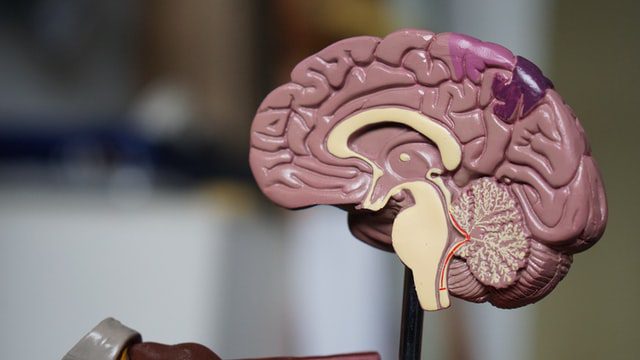Alzheimer’s Disease affects more than 6.2 million Americans and over 50 million people worldwide. In spite of these numbers, little is known about preclinical symptoms of Alzheimer’s Disease.
There’s a saying that “knowledge is power” and, when it comes to Alzheimer’s Disease, that could not be more true! In fact, the more we know about the 3 earliest and most common signs of Alzheimer’s Disease, the easier it will be to help save one’s self and loved ones from this life-altering disease!
What Is Alzheimer’s Disease?
Essentially, Alzheimer’s Disease entails the death of neurons or cells in the brain which, when widespread, causes brain tissue to shrink significantly. This results in increased loss of cognitive abilities.
One prevalent mistruth about Alzheimer’s Disease is that it only affects the elderly. While later stage symptoms that are more chronic typically appear in the elderly population, early signs of Alzheimer’s Disease can begin as early as a person’s 30s. Knowing that Alzheimer’s Disease is not age-specific can be useful in helping identify symptoms at an earlier, less severe stage.
What Are The Key Signs Of Alzheimer’s Disease?
There are 3 common signs of Alzheimer’s Disease that are prevalent in most Alzheimer’s patients: memory loss, personality and behavioral changes, and decreased or impaired judgement. It’s essential to note that these symptoms occur in no particular order, and can vary in their extent and occurrence from person to person.
Symptom # 1: Memory
Memory loss is one of the most common symptoms associated with Alzheimer’s Disease. This is because damage to neuron function initially occurs in the hippocampus—a portion of the brain that is key for memory formation.
Interestingly, patients who experience memory loss are often frightened to tell others about this symptom out of fear of drawing attention to their declining cognitive abilities. However, memory loss typically associated with Alzheimer’s Disease is an unavoidable symptom and becomes more apparent as the disease progresses.
Common signs of memory loss are:
- Mixing words with other words (e.g., sofa for chair)
- Losing direction when walking or driving in a usually familiar area
- Redundancy (i.e., asking the same question repeatedly)
- Misplacing items repeatedly or placing lost items in odd locations (e.g., keys under a chair)
- Forgetting commonly used words and/or constantly searching for the right words
As the disease progresses, memory loss may take an even greater turn for the worse. Information necessary for everyday life may become confused or forgotten. For example, the patient may forget personal identity information, like phone numbers or addresses. They may repeat their favorite stories, and, in some cases, tell fictitious ones.
If you notice this symptom in a loved one, having compassion is key. Avoid drawing attention to their weakening memory. Instead, work to support them with their everyday needs as much as possible by offering emotional support and direction in a gentle, but firm manner.
Be careful not to overly jog their memory or argue with them about their forgetfulness. It might help to create a memory book to help gently remind them about past moments. You might also avoid pushing their memory beyond its ability. For example, if an old friend were to enter the room, gently state who it is rather than say, “who’s come to visit us today?”
Symptom # 2: Personality And Behavioral Changes
Personality and behavioral changes are another common symptom of Alzheimer’s disease. An individual suffering from this disease will often display sudden, unpredictable changes in their mood or behavior. Certain events or incidents may trigger these changes more than others. In every instance, the change in behavior or mood is abnormal.
What spurs mood swings?
Because Alzheimer’s Disease leads to death of brain cells, the brain of the affected individual will begin to work less effectively over time. This results in marked behavioral changes.
Some common behavioral/mood changes in patients suffering from Alzheimer’s disease are:
- Sudden onset of sadness, fear, confusion or anxiety for apparently odd reasons (e.g., too much noise from a radio may cause large anxiety or confusion)
- Unusual conduct like hitting others, pacing, loss in appetite, or hiding items
- Hallucinating, imagining things that aren’t present, or having misconceptions about what is viewed or heard (e.g., identifying a stranger as a childhood friend)
- Going on adventures far away from home
As an Alzheimer’s patient starts to face their new reality, paranoia may begin to set in. In these instances, the individual may become upset with the people surrounding them. They may even blame individuals for their altered state. For example, after losing a set of keys, an Alzheimer’s patient might lash out at those surrounding them, accusing them of stealing their items.
Due to a conglomeration of overwhelming emotions, individuals suffering from Alzheimer’s often experience social withdrawal. This essentially means that they are no longer as active in the social groups they once were, which may result in feelings of deep anxiety.
In instances where paranoia and depression—or any behavioral changes, for that matter—have set in, it’s important to maintain a sense of calm. Remain composed and comforting while reminding the individual that they are safe. At the same time, be sure to keep items away from the patient that can cause bodily harm to themselves or their caregivers.
Symptom # 3: Decreased Or Impaired Judgement
As Alzheimer’s disease takes its course, the ability to make reasonable decisions or judgements begins to decline. In essence, an individual’s ability to make sound decisions in their everyday life begins to wane.
Demonstrable examples of declining cognitive abilities are:
- Inability to understand socially correct contexts
- Failure to comply with procedures or laws (e.g., traffic safety)
- Trouble taking care of day-to-day affairs (e.g., burning food on stove, handling money)
Since the brain is no longer functioning at its fullest with loss of essential tissue, declining cognitive abilities are often life threatening. It becomes essential at this point to ensure that an Alzheimer’s patient receives round-the-clock care. While doing so, one must ensure that they remain emotionally and verbally supportive.
Tips to keep in mind:
- Rather than stand over an individual with Alzheimer’s, sit down to avoid appearing menacing.
- Keep verbal and non-verbal communication friendly and welcoming. Avoid things like shrugging your shoulders or shaking your head “no.” Doing so can appear unsettling.
- Don’t ask questions that are open-ended. Instead, ask questions that provide clear-cut choices. For example, ask “Would you like to have beef or lamb?” rather than “What do you want to eat for dinner today?”
When cognitive decline worsens, one of the best means of support will be emotional. Holding the hand of an individual or going for walks in a relaxing setting are simple, but easy, ways to show an individual at the height of cognitive decline that they matter.





